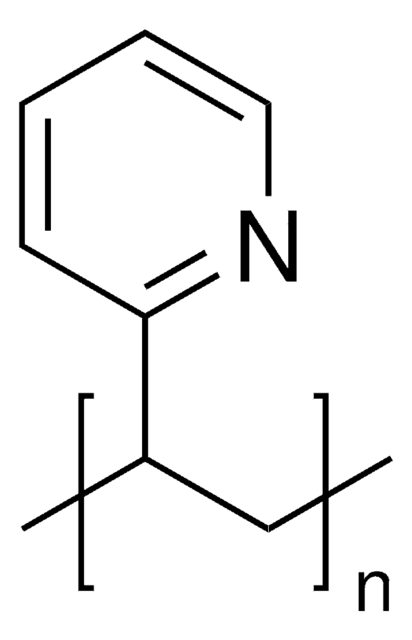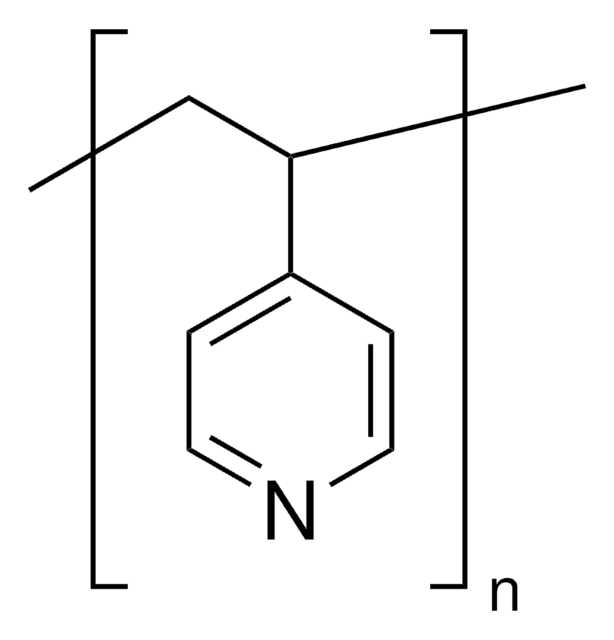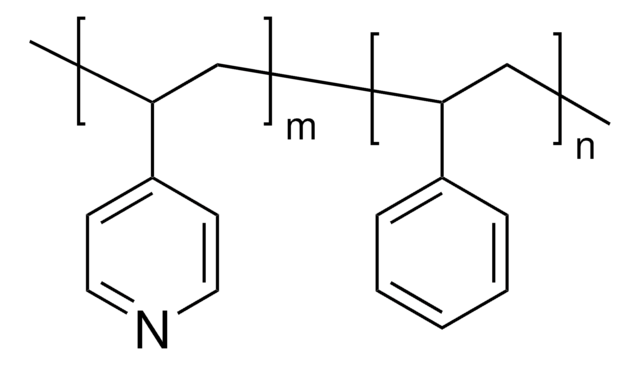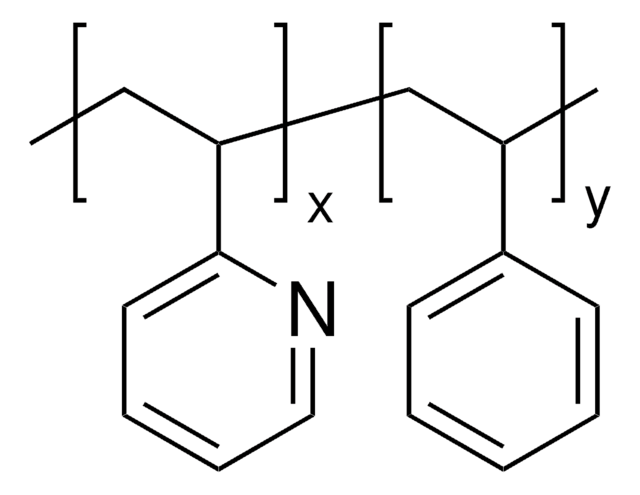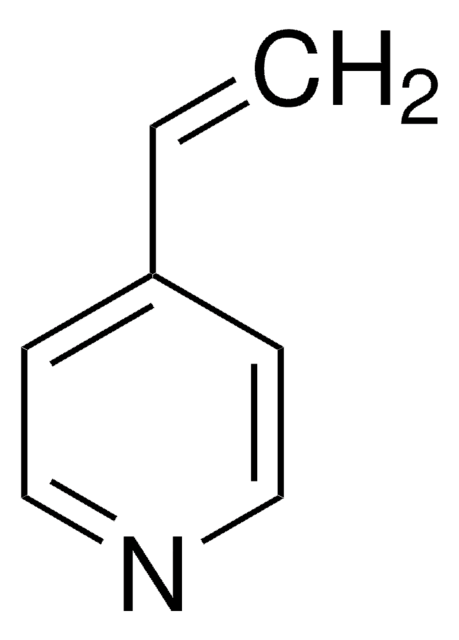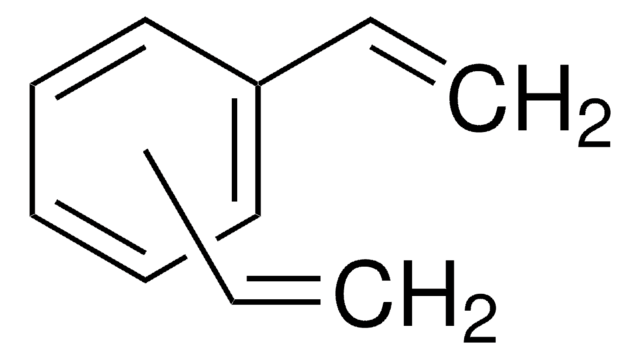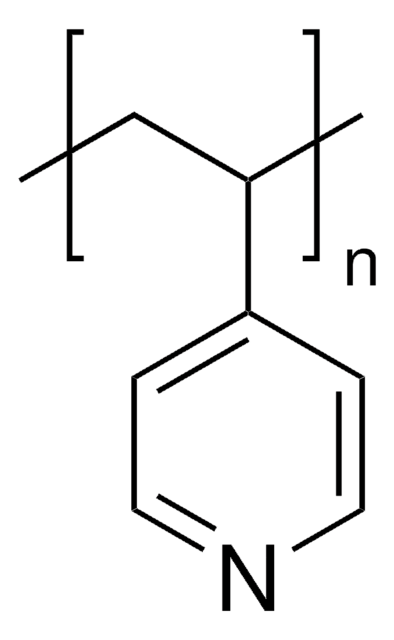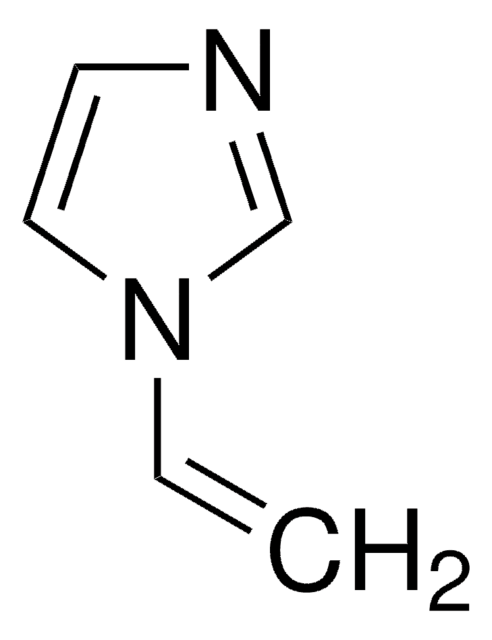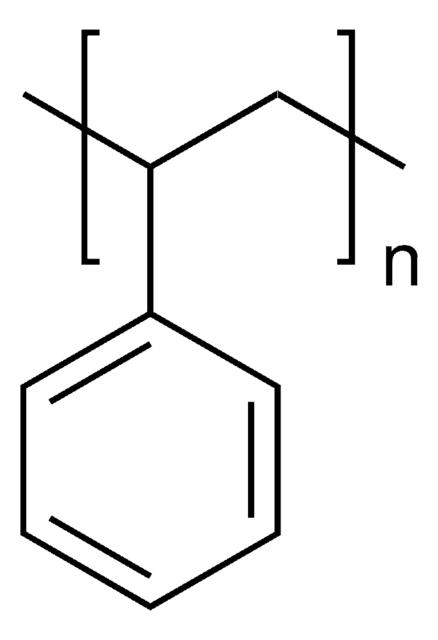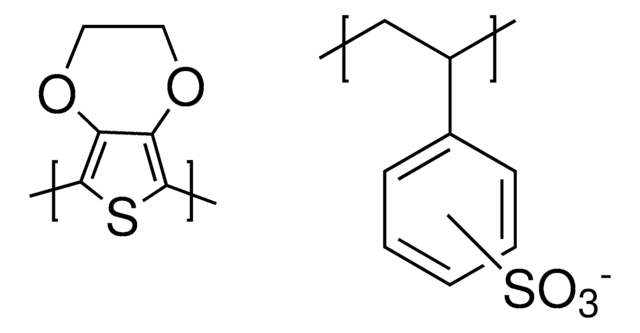523356
Poly(2-vinylpyridine)
analytical standard, average Mw 159,000 (Typical), average Mn 152,000 (Typical)
Sign Into View Organizational & Contract Pricing
All Photos(1)
About This Item
Recommended Products
grade
analytical standard
Quality Level
mol wt
average Mn 152,000 (Typical)
average Mw 159,000 (Typical)
technique(s)
gel permeation chromatography (GPC): suitable
format
neat
InChI
1S/C7H7N/c1-2-7-5-3-4-6-8-7/h2-6H,1H2
InChI key
KGIGUEBEKRSTEW-UHFFFAOYSA-N
Looking for similar products? Visit Product Comparison Guide
Signal Word
Warning
Hazard Statements
Precautionary Statements
Hazard Classifications
Eye Irrit. 2 - Skin Irrit. 2 - STOT SE 3
Target Organs
Respiratory system
Storage Class Code
11 - Combustible Solids
WGK
WGK 3
Flash Point(F)
Not applicable
Flash Point(C)
Not applicable
Personal Protective Equipment
dust mask type N95 (US), Eyeshields, Gloves
Choose from one of the most recent versions:
Already Own This Product?
Find documentation for the products that you have recently purchased in the Document Library.
Customers Also Viewed
Kaizhong Fan et al.
Journal of colloid and interface science, 344(1), 112-116 (2010-01-20)
The interaction between negatively charged organic salts, with one two and three sulfonate groups respectively, and positively charged poly(2-vinylpyridine) microgel particles has been investigated. Absorption isotherms are used to describe the uptake of organic salt into the microgel network and
Karsten Hinrichs et al.
Langmuir : the ACS journal of surfaces and colloids, 25(18), 10987-10991 (2009-07-04)
This work provides direct chemical and structural insight into pH-dependent changes of an ultrathin (d=12 nm) mixed polyelectrolyte brush. In-situ infrared spectroscopic ellipsometry was used for the first time to study the gradual pH-responsive behavior of the brush, constituted of
Mikhail Motornov et al.
Nanotechnology, 20(43), 434006-434006 (2009-10-06)
A pH-responsive mixed polyelectrolyte brush from tethered polyacrylic acid (PAA) and poly(2-vinylpyridine) (P2VP) (PAA:P2VP = 69:31 by weight) was prepared and used for selective gating transport of anions and cations across the thin film. An ITO glass electrode was modified
Andreas Walther et al.
Chemical communications (Cambridge, England), (9)(9), 1127-1129 (2009-02-20)
We report on the unexpected finding of the formation of hydrophobic bridges between polybutadiene patches of multicompartment micelles based on amphiphilic miktoarm star terpolymers in water.
Yuri Roiter et al.
Nanoscale, 4(1), 284-292 (2011-11-15)
The mechanism of nanoparticle actuation by stimuli-responsive polymer brushes triggered by changes in the solution pH was discovered and investigated in detail in this study. The finding explains the high spectral sensitivity of the composite ultrathin film composed of a
Our team of scientists has experience in all areas of research including Life Science, Material Science, Chemical Synthesis, Chromatography, Analytical and many others.
Contact Technical Service